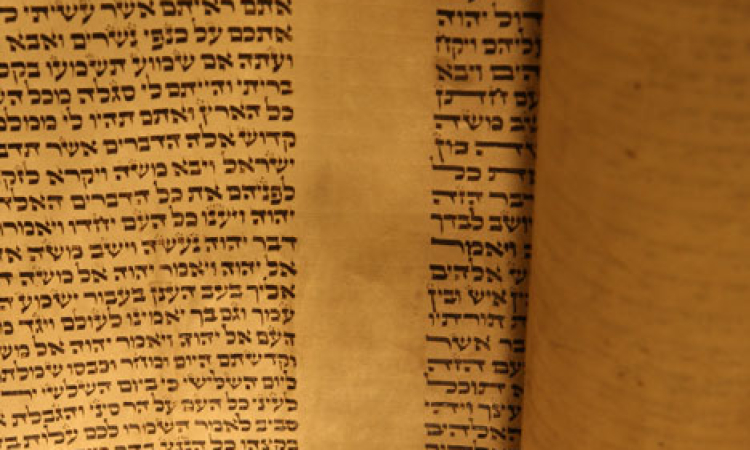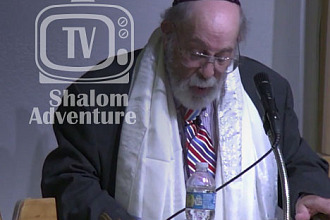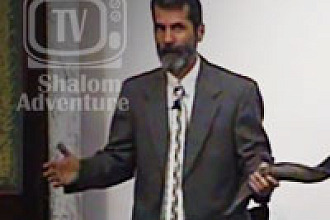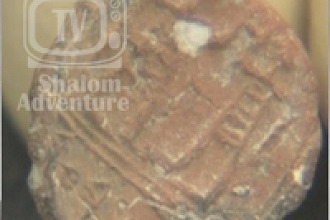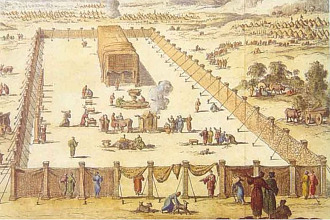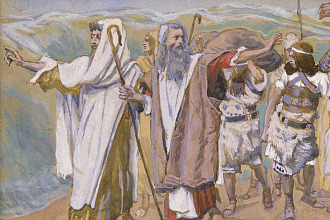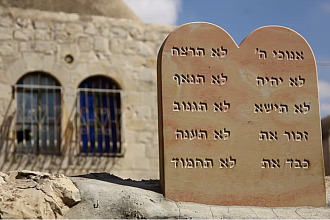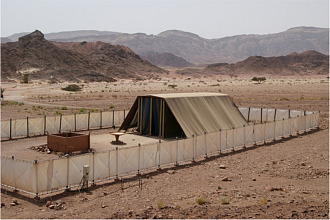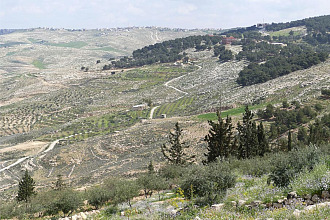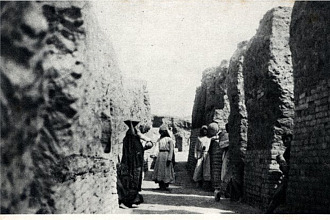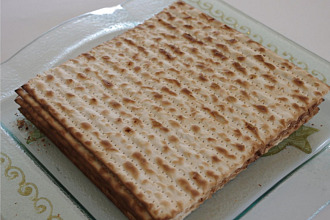Parasha Overview
Korach, Datan and Aviram, and 250 leaders of Israel rebel against the authority of Moshe and Aharon.
The rebellion results in their being swallowed by the earth. Many resent their death and blame Moshe.
G-d's "anger" is manifest by a plague that be¬sets the nation, and many thousands perish. Moshe intercedes once again for the people.
He instructs Aharon to atone for them and the plague stops.
G-d commands that staffs, each inscribed with the name of one of the tribes, be placed in the Mishkan.
In the morning the staff of Levi, bearing Aharon's name, sprouts, buds, blossoms and yields ripe almonds.
This provides Divine confirmation that Levi's tribe is chosen for priesthood and verifies Aharon's position as Kohen Gadol, High Priest.
The specific duties of the levi'im and koha¬nim are stated.
The kohanim were not to be landowners, but were to receive their sustenance from the tithes and other mandated gifts brought by the peo¬ple.
Also taught in this week's Parsha are laws of the first fruits, redemption of the firstborn, and other offerings.
Parasha for the Week: Kora'h: Numbers 16: 1 - 18:32
Aftarah for the Week: 1 Samuel 11:14 - 12:22
Besorat Yeshua: Mark 5:9-20
Please Note: This Parasha is not for this particular week but is just here for demonstration purposes. When this site is fully launched it will have the parasha for that current week posted. The two previous weeks will remain posted until they are moved into the archives.
Parasha - Numbers 16: 1 - 18:32
Moshe's cousin, Kora'h
Korach was a member of the tribe of Levi and a cousin of Moshe. According to our sages, he was one of the wealthiest men who ever lived. Korach was a jealous person and when Moshe didn't appoint him to any position of leadership, he revolted against Moshe and Aaron. Korach also convinced 250 people from the neighbor¬ing tribe of Reuben to join him. The Torah states, "They assembled together against Moshe and Aaron and said, 'You take too much honor for yourselves." Korach argued that "the entire congregation is holy and G-d is among them," so there is no need for Moshe and Aaron's leadership. "Your argument is not against us," Moshe reminded Korach, "but against G-d who commanded me whom to appoint to leadership." Moshe couldn't change Ko¬rach's mind. Moshe then told the people to move away from Korach and his supporters. Moshe proclaimed, "If through a common death will these men die then the L-rd has not sent me. But if G-d will make the ground open its mouth and swallow them up together with all their belongings and they go down alive into the pit, then you shall know that these men have de¬spised the L-rd." As soon as Moshe finished speaking, "The earth opened her mouth and swallowed them up together with their households and all their goods." After this, the "entire congregation" accused Moshe and Aaron, saying: "You have killed the people of the L-rd". The Torah tells us that as a result 14,700 Israel¬ites died in a plague.
In the rebellion of Korah is seen the working out, upon a narrower stage, of the same spirit that led to the rebellion of Satan in heaven. It was pride and ambition that prompted Lucifer to complain of the government of God, and to seek the overthrow of the order which had been established in heaven. Since his fall it has been his object to infuse the same spirit of envy and discontent, the same ambition for position and honor, into the minds of men. He thus worked upon the minds of Korah, Dathan, and Abiram, to arouse the desire for self-exaltation and excite envy, distrust, and rebellion. Satan caused them to reject God as their leader, by rejecting the men of God's appointment.
Do not the same evils still exist that lay at the foundation of Korah's ruin? Pride and ambition are widespread; and when these are cherished, they open the door to envy, and a striving for suprem¬acy; the soul is alienated from God, and uncon¬sciously drawn into the ranks of Satan. Like Korah and his companions, many, even of the professed followers of Mashach, are thinking, planning, and working so eagerly for self-exaltation that in order to gain the sympathy and support of the people they are ready to pervert the truth, falsifying and misrepresenting the Lord's servants, and even charging them with the base and selfish motives that inspire their own hearts. By persistently reit¬erating falsehood, and that against all evidence, they at last come to believe it to be truth. While endeavoring to destroy the confidence of the people in the men of God's appointment, they really believe that they are engaged in a good work, verily doing God service. (PP 403)
AFTARAH - 1 Samuel 11:14 - 12:22
The people of Israel want to reject the leaders G-d has chosen for them. They tried to reject Moshe and Aha¬ron, but also G-d himself as their king.
Parasha: Kora'h, Dathan, and Abiram lead two hundred fifty leaders to challenge the leadership of Moshe and Aharon. "They came as a group to oppose Moses and Aaron and said to them, "You have gone too far! The whole com¬munity is holy, every one of them, and the LORD is with them. Why then do you set yourselves above the LORD's assembly?" (Numbers. 16:3)
The Aftarah: It is about the rejection of G-d as the king of Israel. "But when you saw that Nahash king of the Ammonites was moving against you, you said to me, 'No, we want a king to rule over us' — even though the LORD your God was your king. (1Sam. 12:12)
King Solo¬mon in Ec¬clesiastics says, "Wealth can at times be to the detriment of its owner." Our sages say that this refers to the wealth of Korach who in the end lost everything as a result of us¬ing his wealth for the wrong thing.
Besorat Yeshua - Mark 5:9-20
Parasha: Kora'h was full of envy. Envy could be a possession from the devil. It is about evil spirits.
Besora: Then Yeshua asked him, "What is your name?"; "My name is Legion," he replied, "for we are many." It is a matter of possession, Evil spirits. (5:9)
Parasha: The people of Israel were not happy and accused Moshe of killing G-d's people. If they could they would ask Moshe to leave them. "The next day the whole Israelite community grumbled against Moses and Aaron. "You have killed the LORD's people," they said." (Num. 16:41)
Besora: the people living in that region where not happy "Then the people began to plead with Jesus to leave their region." (5:17)
The Torah is not only a book of stories and anecdotes, but of living directives on how to conduct our lives. This is implied by the name "Torah" - "teaching and guide."
This is especially true of the lesson we can learn from the story of Korach, as Rabbi Eliezer says in Pirkei Avot (chapter 4): "Envy, lust and the seeking of honor drive a person from the world."
The Talmud says that a person should be careful not to put one's eyes (desire or envy) what does not belong to them; "For Korach wanted something which did not belong to him, as a result, not only didn't he get what he desired, but he also lost what he already had!"
Jealousy is one of the worst qualities a person can possess.
All belong to G-d
There once lived a wealthy religious man. He thanked G-d for everything he had and shared his wealth with others. Once, as he was returning home from morning prayers he thought about the words he just recited in the morning prayers, "Wealth and honor are from You."
"Is it possible that the wealth which I posses is always in G-d's hands?" he wondered. "Could G-d really take away everything from me? Even if He destroyed my factories in this city, I still have businesses in other cities. If He destroyed my busi¬ness on land, I still have ships on the oceans."
As the man was so immersed in thought, he entered a forbidden neighborhood which was off limits to Jews, punishable by death. He was immediately arrested. Begging for his life, he was told that his life would be spared if he signed a note transferring everything he owned to the church. He did so and was released.
Now, on his way home, he was thankful to G-d that his life was spared. "Now I see that G-d can take everything away in an instant. But is it possible for G-d to give everything back as fast as He had taken it?" he wondered.
Suddenly he heard a tremendous noise. Looking back he saw that lightning hit the building in which he had just transferred all his wealth to the church. The entire building was engulfed in flames together with the note he had just signed. In an instant he was once again as wealthy as before.

